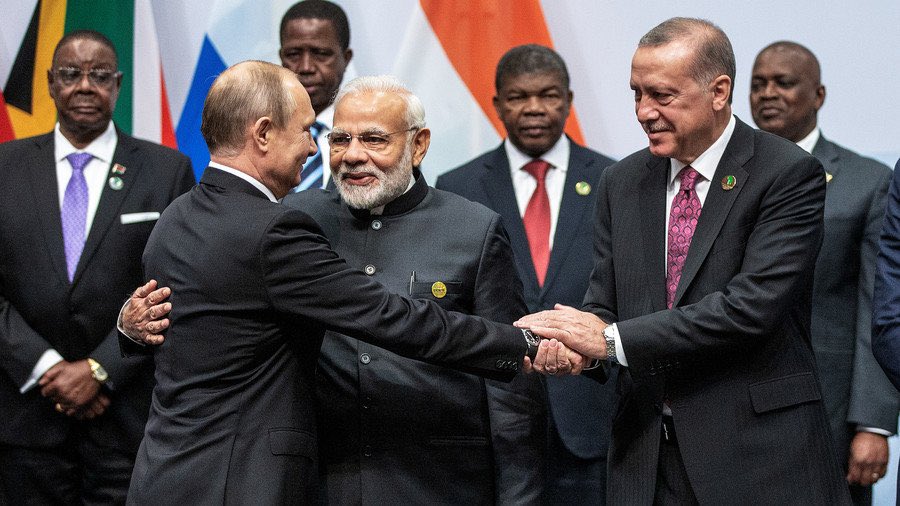Long-term alliances between nations must be institutionalized with structures like NATO, the defunct Warsaw Pact, the Organization of Turkic States, and the EU. These tie member states together economically, socially, and militarily. By forming geopolitical blocks, states insulate themselves in the event of conflict, and present a united front against adversaries. While BRICS isn’t technically a military alliance, it does form the beginnings of a new geopolitical block designed to counter NATO. In this context, the potential impact of Türkiye joining BRICS can’t be overstated.
US geostrategy is largely inherited from the British Empire, which prioritized a strong navy, control of maritime chokepoints, and preventative steps against a unified Eurasian power. Kissinger’s shuttle diplomacy helped avert a Chinese-Soviet block decades ago, at the cost of exporting US industrial capacity and investments to China. This allowed the US to vastly outspend the economically diminutive Warsaw Pact and eventually win the Cold War. Today, due to severe US strategic miscalculations, major powers like Russia, China, Iran, North Korea, and Türkiye are increasingly cooperating against Western Imperialism.
The economic, strategic, and military implications of such cooperation are dire for US hegemony. This cooperation was entirely avoidable, if America didn’t pursue such hostile policies against Russia (the Ukrainian conflict forced it firmly into China’s camp), against Türkiye (absurd, immoral, and illegal support for PKK terrorists in Syria, in addition to sanctions and sheltering a coup leader), and against Iran (Republicans repeatedly threatened war against Iran, and assassinated many high Iranian officials). A large share of blame for America’s failed foreign policy belongs to Zionist influence. The anti-Turkish/anti-Sunni policies exercised by Washington, under euphemisms like “securitization”, and “counter-terrorism”, are due to Zionist and Gulf dictatorship lobbying, as both feel threatened by the emergence of genuine democracy in the region. The current genocide in Gaza represents a final breaking point, as it made clear that both US political parties are overtly hostile towards the region’s Muslims.
By the time America finally rids itself of Zionism’s undue influence (as it must), the strategic situation will present an existential threat to American interests, with no remaining soft power or goodwill towards the US. Cooperation between Türkiye and Russia is likelier now than ever, as the former power imbalance has reversed, and both are confronted with US aggression. The West can hardly handle the Ukrainian conflict, let alone a simultaneous crisis involving North Korea, Taiwan, Russia, Türkiye, and the Persian Gulf. The US must rapidly reassess its priorities, as the old maxim “he who defends everything, defends nothing” holds true. The first step the US must take in correcting its policy is to support loyal NATO ally, Türkiye, against PKK terrorism, and help it secure peace in Gaza.






